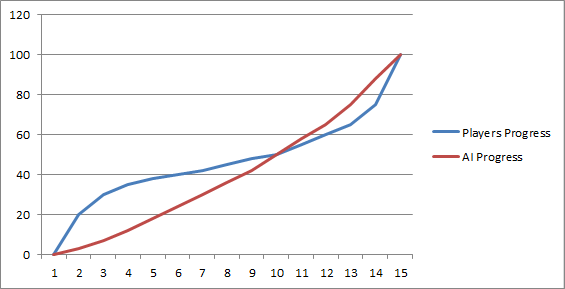This question may interest some. I have been spending time lately with co-operative tabletop games, though more wargames than the typical Euroish co-op.
How often should inexperienced players lose a co-operative game? Co-ops are puzzles, and with time good players will solve the puzzle. (A friend says he guarantees a win in Pandemic unless one of three or four bad cards comes out early. He's solved it.) If it's too easy, I think players will just play once or twice and pass it by. If it's too hard, players may just move on to the next game.
I also think wargamers (those who don't sneer at co-ops) are more persistent than other tabletop gamers.
So what do you think? What percentage of the time should the players lose the game early on?












Thanks for the discussion. Clearly, different people have quite different ideas of what a co-op game is. . .
Questccg: Sigh. By early on I didn't mean early in the individual play of the game, I mean early in their multiple plays of the game, when they're inexperienced, as opposed to when they're experienced. Sorry it wasn't clear.
I may have been biased by the games I have in mind. In those games the players take it on the chin from the beginning, because the situation demands that, and the question is whether they can recover in time to save a sufficient part of their original holding. In one game, even if the players do very well, they lose more than half the living systems in the entire galaxy, destroyed. Think barbarian invasions, say. Or the Bronze Age Collapse. These games start with slaughter.
Prof: ANY co-op, like any single-player game, is in the end a form of puzzle, except insofar as the programming (which in tabletop is usually a deck of cards) can mimic a human player. I like to add enough randomness and variability that the game cannot be too predictable. That usually involves dice as well as cards. I generally avoid deterministic conflict resolution.
questccg: Once you beat it, it will hardly have any replay value? The more it's like a formal puzzle, yes. The less it's like a formal puzzle, NO. As I don't like formal puzzles, my co-ops are much more like many wargames than like puzzles. You can win often and then get stomped the next time you play (personal experience . . .).
Co-ops need chaos. If they're too predictable, you get something like Quest refers to, beat it and you're done.